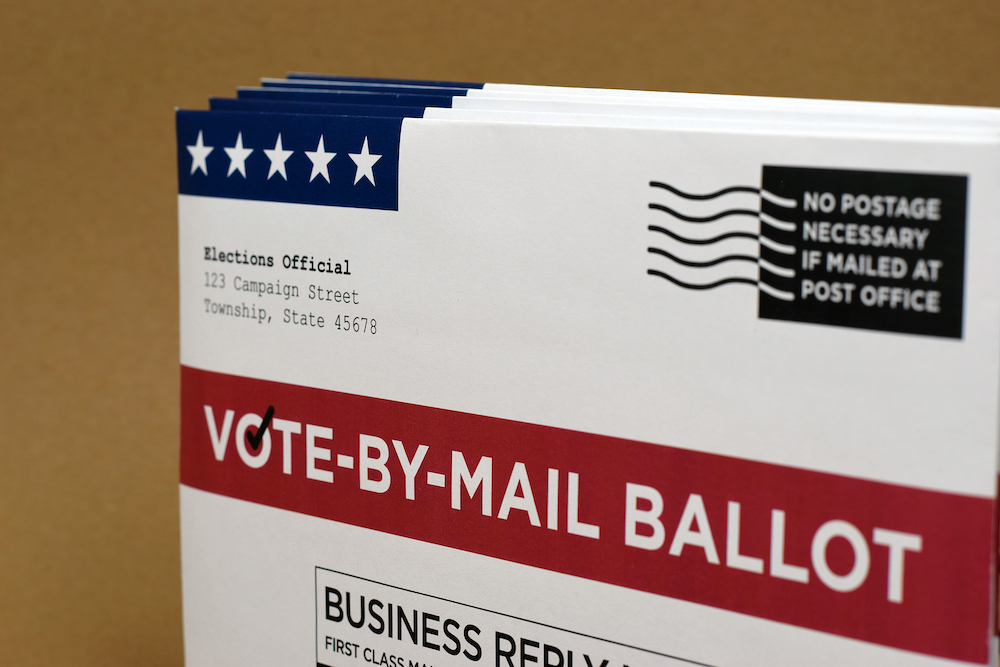Fifth Circuit Slow-Walks Argument in Critical Texas Voting Rights Case

Last week, the U.S. Court of Appeals for the Fifth Circuit announced that it will not hear oral argument in a critical Texas voting rights case until August 31, pushing its decision-making process dangerously close to the November 3 general election. The case, Texas Democratic Party v. Abbott, is a challenge to Section 82.003 of Texas’s Election Code, which provides that only voters 65 years of age or older have the right to vote by mail without any additional excuse on election day. Under current pandemic conditions, this provision forces those under 65 to risk their lives to vote in person. The Texas Democratic Party, along with individual voters, sued, alleging that this provision violates younger voters’ rights under the Twenty-Sixth Amendment, which provides that “[t]he right of citizens of the United States . . . to vote shall not be denied or abridged by . . . any State on account of age.” Constitutional text and history are on the plaintiffs’ side, and by slow-walking proceedings in the case, the Fifth Circuit endangers the fundamental right to vote.
In May, Judge Fred Biery of the U.S. District Court for the Western District of Texas agreed with the Texas Democratic Party that voters, forced to choose between their health and their vote, would face irreparable harm under the current law. To remedy this, Biery issued an injunction that would allow any eligible Texas voter fearful of COVID-19 transmission to vote by mail so long as pandemic conditions persist. Texas appealed the district court’s decision to the Fifth Circuit, which issued a stay of the district court’s injunction on the grounds that Texas was likely within its rights to restrict absentee voting based on age. The Supreme Court denied a request to vacate the Fifth Circuit’s stay.
Now the case is in front of the Fifth Circuit for a decision on the merits, and the Fifth Circuit should affirm the district court’s injunction. As we explain in an amicus brief we filed in the Fifth Circuit, the text and history of the Twenty-Sixth Amendment prohibit any law that denies equal voting opportunities to voters on account of age. Indeed, the drafters of the Twenty-Sixth Amendment used broad language, modeled on the Fifteenth and Nineteenth Amendments, which were specifically designed to outlaw all discrimination in voting on the basis of race and sex. As a result, the Twenty-Sixth Amendment by design forbids the government from curtailing or diminishing the rights of any adult voter on account of age.
Given the amendment’s sweeping promise of equal voting opportunities without fear of discrimination based on age, Section 82.003 of Texas’s election code violates the Twenty-Sixth Amendment. Having decided to create an absentee voting program, Texas cannot discriminate based on age in determining who may avail themselves of that program.
But if the federal courts do not quickly resolve this lawsuit, Texas voters under the age of 65 will be denied their right to vote absent age discrimination. Indeed, as a result of the stay issued by the Fifth Circuit, countless Texas voters were forced to choose between their health and their constitutional right to vote during the July 14 primary run-off election.
Recognizing the importance of quick resolution of the case, the plaintiffs filed their merits briefs in the Fifth Circuit weeks before it was due. And in June, they even asked the Supreme Court to hear the case on the merits without waiting for a decision from the Fifth Circuit to ensure that the case would be resolved well in advance of the election. In denying plaintiffs’ motion to vacate the Fifth Circuit’s stay, Justice Sotomayor wrote that she “hope[s] that the Court of Appeals will consider the merits of the legal issues in this case well in advance of the November election.”
The Fifth Circuit could easily have held oral argument well before the end of this month. Its failure to do so means that countless Texas voters could well be forced to choose between their health and exercising their right to vote in November, notwithstanding the Twenty-Sixth Amendment’s mandate. After all, even if the Fifth Circuit issues a decision very soon after argument, there’s little doubt that the case will then go to the Supreme Court. And the Supreme Court is likely to be hesitant, given the so-called “Purcell principle,” to issue an order changing election rules shortly before the election, regardless of what it concludes about the merits of plaintiffs’ claims. And if plaintiffs do not get the relief they are seeking before the election, voters will pay the price.
The right to vote is fundamental; indeed, the Supreme Court has recognized that it is “preservative” of all other rights. The Twenty-Sixth Amendment makes clear that no one’s right to vote should be abridged because of their age, but there is now a real danger that will happen in Texas unless the Fifth Circuit does what it should and acts quickly to decide this case.
